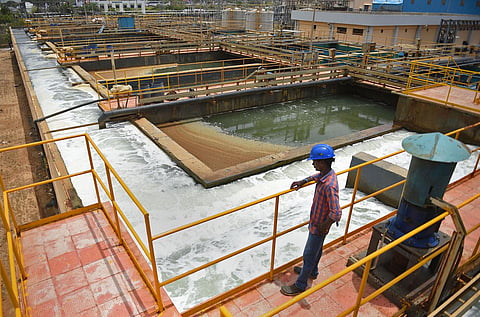

CHENNAI: An expert appraisal committee of the Union environment ministry has given nod for Chennai-based National Institute of Ocean Technology (NIOT) to build world’s first Ocean Thermal Energy Conversion (OTEC)-powered desalination plant at Kavaratti Island in Lakshadweep. NIOT scientists said it will be the first prototype in the world to be put to public use for generating power and fresh water together by utilising naturally occurring ocean temperature gradients.
The OTEC technology uses the temperature difference between the cold water in the deep sea (5°C) and the warm surface seawater (25°C) to generate clean, renewable electricity. Warm surface water is pumped through an evaporator containing a working fluid. The vaporized fluid drives a turbine/generator. The vaporized fluid is condensed back to liquid in a condenser cooled with cold ocean water pumped from deeper in the ocean. OTEC systems using seawater as the working fluid can use the condensed water to produce desalinated water.
The expert appraisal committee that met on August 24 has recommended the environment ministry to issue clearance under the Island Protection Zone (IPZ) and Coastal Regulation Zone (CRZ) Notifications.
The committee said the project is crucial for meeting the drinking water requirement of Kavaratti Island. As per official records, cold water will be drawn from a depth of 1,000 metres through pipes.
NIOT has established a Low Temperature Thermal Desalination (LTTD) technology-based desalination plant at Kavaratti in May 2005, Agatti and Minicoy in 2011, and Kalpeni in 2021. These plants have been generating fresh water continuously and have been extremely helpful to the people. However, the power source is diesel generator sets which are polluting. Using the OTEC cycle for powering the desalination plant is the most suitable and reliable alternative that uses an environment-friendly energy resource.
The expert committee, however, has imposed some conditions while recommending for IPZ clearance, including continuous coral reef monitoring by Lakshadweep forest department and Zoological Survey of India. NIOT was also asked to submit a detailed financial viability of the prototype for commercial utilisation as an R&D document within two years.